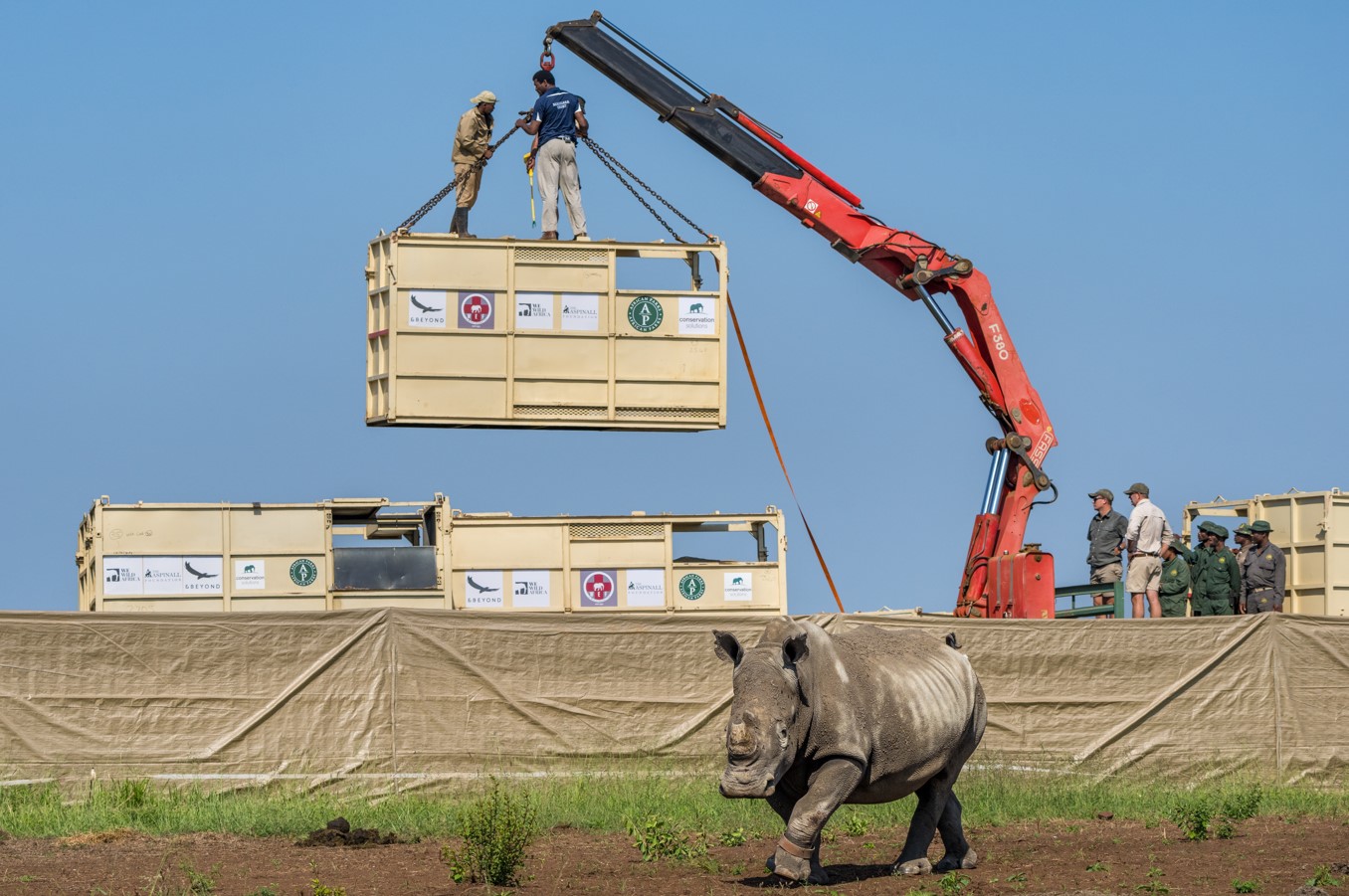African Parks has officially launched the rewilding phase of ‘Rhino Rewild’, an ambitious plan to rewild 2 000 Southern White rhino into secure protected areas in Africa over the next 10 years.
In the first move of this continent-wide effort, 40 Southern White rhino were donated to the Munywana Conservancy in Zululand, KwaZulu Natal, in support of the conservancy's successful conservation and community efforts.
The Munywana Conservancy, a 30 000-hectare reserve, is upheld through a collaboration of community and private landowners that include the Makhasa Community Trust, the Mnqobokazi Community Trust, &Beyond Phinda and ZUKA Private Game Reserves.
“We are extremely pleased to receive these 40 rhino from African Parks to supplement the current population of White rhino at our community conservancy,” said Thokozani Mlambo, Chairperson of the Makhasa Trust, one of the three primary shareholders of the Munywana Conservancy.
“We see this as recognition of the important role that community-owned land plays in conservation, and we are proud to be collaborating in such a significant partnership to rewild rhino across our continent.”
In September 2023, African Parks purchased the world’s largest captive rhino breeding operation from businessman John Hume. The main objective of the initiative is to rewild all the rhino to well-managed and secure protected areas, thereby establishing or supplementing strategic populations, ultimately helping to de-risk the future of the species.
“I am especially pleased to see that the very first translocation of some of the 2 000 White rhinos, is going to this important landscape within South Africa, which is a flagship partnership, in which communities are making a significant contribution to the conservation of our natural heritage,” said Barbara Creecy, South African Minister of Forestry, Fisheries and Environment.
“On behalf of the Government of South Africa, we were very supportive of African Parks’ plan to purchase and rewild these rhino and remain a key partner in providing technical and scientific advice and the support needed to carry out this conservation solution in South Africa and on the African continent.”
To achieve a successful outcome of this translocation, the animals' body condition and parasite adaptation will be closely monitored as they adjust to their new environment. In addition, the conservancy will implement intensive security measures to ensure the safety of the 40 dehorned rhino.
This translocation was carried out by African Parks, &Beyond Phinda, Conservation Solutions and We Wild Africa, with financial support from The Aspinall Foundation and The Wildlife Emergency Fund.
“Rhino Rewild is one of our most ambitious undertakings to date, where together with a multitude of governmental, conservation and community organisations, and key funders, we have the rare opportunity to help de-risk a species and, in the process, help secure some of the most critical conservation areas not just in Africa, but in the world,” said African Parks CEO, Peter Fearnhead.
African Parks manages 22 protected areas in partnership with governments and communities in 12 countries.























